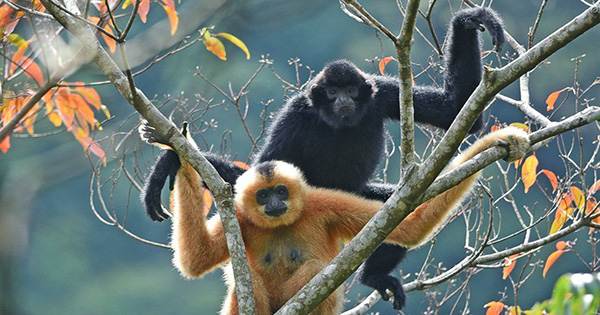Mothers have been spotted carrying their dead offspring in numerous monkey species — frequently long after death. Nonhuman primates exhibit a partial awareness of others’ deaths, according to the greatest research of this behavior yet conducted, but circumstances such as the depth of the mother-infant attachment also influence behavior. Funeral customs are a universal part of human civilization and our grief process, whether we bury or burn our dead. Primatologists supply some answers to anthropologists’ questions about their origins in the journal Royal Society B: Biological Sciences. The researchers looked at 409 reports from mothers across 50 species that had experienced the loss of an infant.
The most common known response to the death of a member of the same species is the heartbreaking behavior of primate mothers carrying deceased infants (infant corpse carrying, or ICC). As the paper points out, ICC appears to be evolutionary maladaptive since it interferes with food foraging and predator escape.
Researchers discovered that ICC can continue up to ten days in Namibian chacma baboons last year. However, this carrying period can be as little as an hour in some cases.
One theory for ICC is that primate moms aren’t always aware that their infant has died. The researchers discovered that baboons treat newborn corpses differently from live babies, calling the theory into question.
Dr. Alecia Carter of University College London, the lead author of last year’s study, is a co-author of this new paper on ICC, which looks for trends in previously published instances across all non-human primate species.
“Our findings suggest that primates, like humans, may be able to learn about death in comparable ways: it may take practice to comprehend that death causes a long-term ‘cessation of function,’ which is one of the human ideas of death,” Dr Carter said in a release.
“What we don’t know, and perhaps never will know, is whether primates can comprehend that death is universal, that all species, including themselves, will die.”
Eighty percent of the species studied have ICC. According to the article, our closest cousins, the Great Apes, as well as Old World monkeys, are more prone to transport corpses and do so for longer periods of time. ICC, on the other hand, was not witnessed among lemurs, but they will return to check on a dead body and call to it. Infants who died at ages when the mother-child attachment is thought to be strongest were carried for longer, and younger mothers are more likely to carry their kids.
The most fascinating discovery is that ICC is higher when infants are premature or die from illness rather than accident or infanticide, despite the risks of infectious disease.
“Primate mothers may have a better knowledge of death via experience with death and external cues, and so ‘decide’ not to carry their deceased kid with them, even if they still suffer loss-related emotions,” said co-author Elisa Fernández Fueyo. When an infant dies from an internal reason, or when the mother is young and innocent, the mother may be unsure of the cause of death. In other circumstances, this means they are aware.















